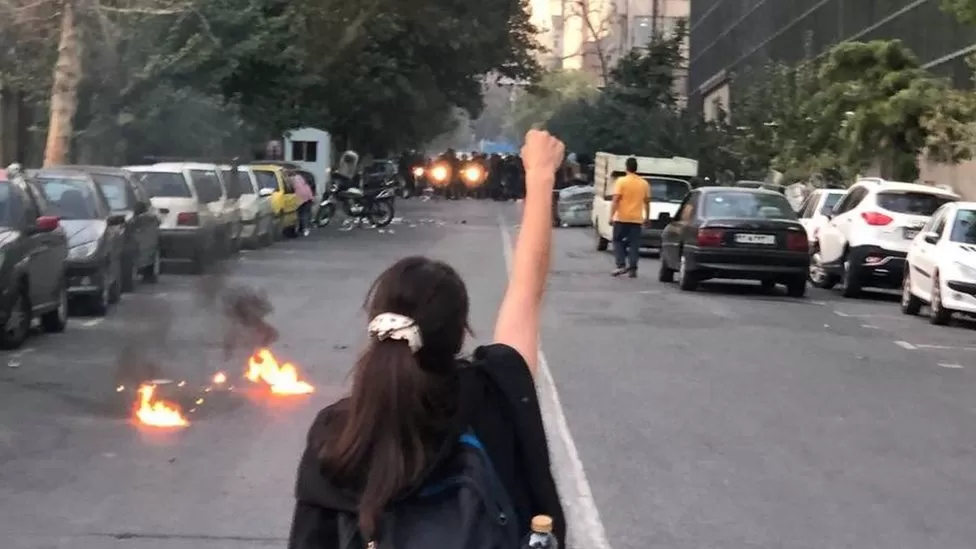During times as tumultuous as these, the public looks to journalists to discover, capture and deliver the news by going to places and events many cannot reach themselves. In doing so, journalists are risking their own safety and security to exercise a fundamental constitutional right — but they shouldn’t have to.
Following George Floyd’s tragic death at the hands of multiple police officers, protests erupted all across the nation as indignant civilians took their cause to previously barren streets. Among these protests, most have remained peaceful, some have evolved into violent riots, while others have even involved looting. No matter the nature, these demonstrations share the unifying element of needing to be reported on.
News organizations all over the country heeded to this call promptly and valiantly. However, as reporters were dispatched to sites of protest, they most likely didn’t anticipate being the target of relentless violence.
Documented cases of police officers exerting excessive force on protestors have sprung up across America and made it painfully evident that though they are the corrupt institution being called out in demonstrations, police forces are far from claiming accountability and rectifying their conduct. It’s also worth noting that protests tend to only escalate into violent clashes when police presence arrives.
Without belittling the plight of protestors standing against an oppressive system, it must be said that recent attacks on journalists covering the Black Lives Matter protests carry an especially sinister connotation. Armed with tear gas and rubber bullets, the police have escalated their crowd control tactics by assaulting and arresting journalists on the job, breaking the norm of the press usually receiving immunity at such events due to the neutrality and necessity of their work. In engaging in such behaviors, police forces are infringing on implicit protections granted to journalists by the constitution.
Perhaps more unsettling is the sign of the United States — previously a bastion of democratic freedom — slipping deeper into authoritarianism. Since May 28th, the Nieman Lab has recorded at least 130 instances of journalists being assaulted by police while working the field at protests. Given the chaotic nature of some of these events, some documented incidents may pass as accidental. However, reporters are almost always identified by vests, badges, or equipment which makes it easy to distinguish them from other participants. Personal accounts from many victims also indicate that such aggression is often deliberate and pointed.
OUR LATEST DATA:
*233+ total press freedom incidents*41+ arrests/detainments
153 assaults (125 by police, 27 by others)
39 equipment/newsroom damageAssault category breakdown:
53 physical attacks (33 by police)
35 tear gassings
21 pepper sprayings
55 rubber bullet/projectiles— U.S. Press Freedom Tracker (@uspresstracker) June 3, 2020
The severity and nature of these occurrences can vary, although all cases of assault seem to be unwarranted. From Linda Tirado, who was permanently blinded in one eye due to a projectile hurled at her by Minneapolis police while taking photos at a protest, to Adolfo Guzman-Lopez, who was conducting an interview when California police shot him in the throat with a rubber bullet, the forceful interference with important journalism cannot be taken as innocent mistakes.
The harrowing words of the victims leave a resounding sound. Vice journalist Michael Anthony Adams exclaimed: “Press!”, as he was pepper-sprayed at a gas station. A Louisville television correspondent screamed on air: “I’m getting shot!” while being aimed at with a pepper ball by police. Such heart-wrenching pleas for help reflect the perils journalists must confront on a daily basis just to get the news to audiences in dire need of reliable information.
Photojournalist Linda Tirado (@KillerMartinis) was left permanently blind in one eye after being struck with a projectile fired by police: https://t.co/5QLhGpG8uR
— Jeremy Diamond (@JDiamond1) June 3, 2020
Although several police departments have issued apologies and a lawsuit is to be launched against this misconduct, the problem remains stark and disturbing. Members of police forces are abusing their power egregiously. By preventing journalists from fully covering protests, it permits officers to evade accountability. Without cameras and people to witness and relay the happenings at protests, police are further able to escape scrutiny and engage in more objectionable acts.
This is why such attacks are far more than isolated incidents. In a time when public opinion is so fickle and large amounts of people need to be mobilized behind a common cause, any deprivation of relevant news is reprehensible and undemocratic. All information gathered at protests is vital to informing the general populous. By debilitating members of the press, the police are effectively gouging out the eyes of the public.
The outright aggression against the press is not unprecedented. Public demonstrations have always been a hotspot for physical attacks against reporters. All of this is also happening against a sociopolitical backdrop of antipathy against news organizations in general.
Under a president that has relentlessly undermined the legitimacy of the news media and amid a time of declining public trust in the media as an institution, reporters have found it harder to do their jobs of being public interest watchdogs. They also face other formidable threats such as drastic loss of jobs in the industry and heightened safety risks while reporting in foreign countries. The recent abuse of journalistic freedoms is sure to further disincentivize aspiring reporters from entering the industry and inhibit the capacity of news publications.
The Washington Post’s mantra, “Democracy Dies in Darkness”, could not ring truer today. The behavior of American police forces is far more reminiscent of those running a police state than a democratic one. With the freedom of the press being one of the last standing barricades between liberty and tyranny, police must meaningfully punish those who have engaged in violence against reporters and prevent future occurrences.
Featured photo: Pexels



